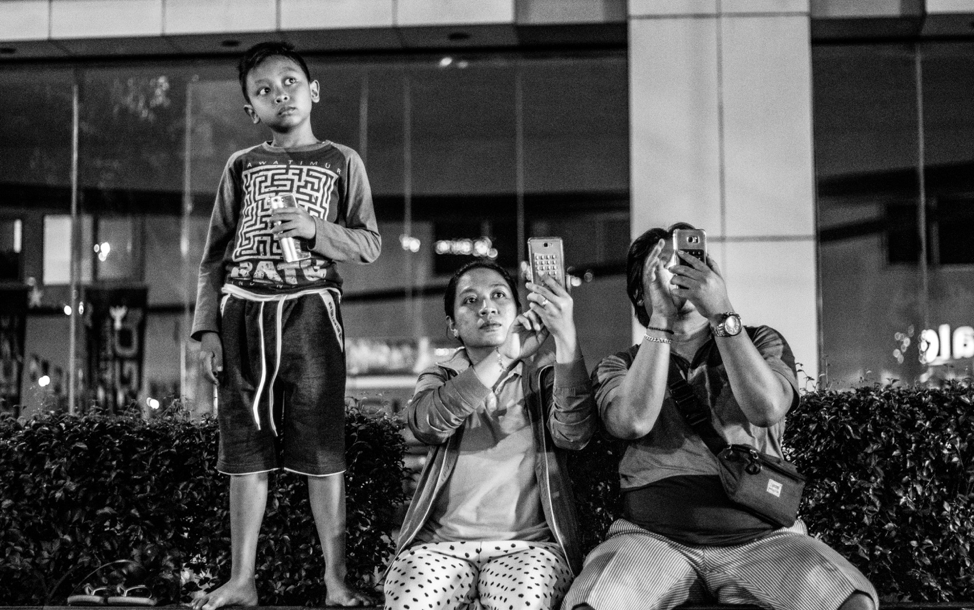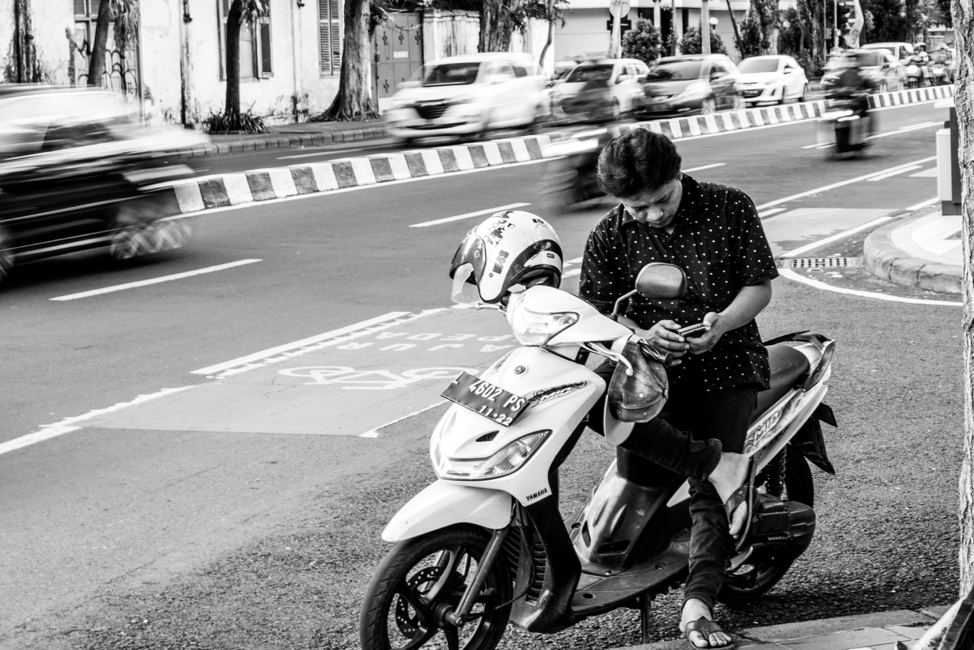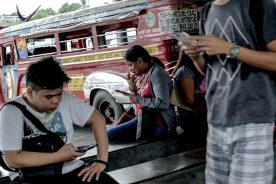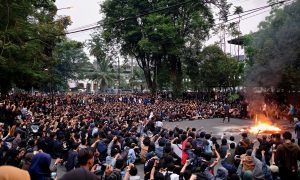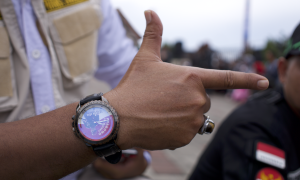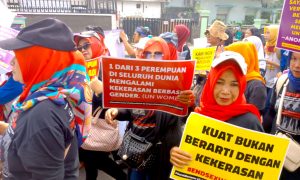Freedom of expression used to be an object of contention solely between an individual and their government. The internet has complicated that social contract. Twitter, Facebook, and Google have replaced, at least on social media, the government of Indonesia as the highest authority. Their terms and regulations affect its citizens more than national law. Even though the government, to some extent, has the power to regulate cyberspace, its enforcement powers are, in fact, limited.
While the government of Indonesia was able to successfully get 70,000 websites blocked, none of them were giant social media networks, including Facebook, Twitter, Instagram, and YouTube. It would be unimaginable to block access to those networks—except for China and North Korea. Therefore, the government is reliant on the companies’ approval to remove content shared within the services.
In that situation, where the government requests the suspension of accounts or content, the social media companies act as the final judicial body. They decide which requests to comply with, using their own terms and regulations, without rights holders’ representation.
The ability of all forms of expression, from minorities’ voices to terrorist propaganda, to spread among Indonesians is left under the authority of profit-driven entities which were not democratically elected, and are not even subject to binding obligations under international law. Since Indonesia is also a flawed democracy, and freedom of expression is in some ways arbitrarily restricted and manipulated, social media companies have duties to safeguard the freedom of expression.
The Roles of Social Media Companies
Twitter, Facebook, and Google have their own mechanisms to process legal demands from governments and courts. All requests are subject to review under their terms and regulations. They have made it clear that even court orders do not compel them to take any action.
For example, in 2018 Twitter received 516 removal requests related to 1,698 accounts from the Indonesian government. The compliance rate for those requests was 0%. Facebook and Google do not publish their compliance percentage but their transparency reports demonstrated that not all requests were actioned.
It is regrettable that there are only a few cases where social media companies have disclosed the details of the request. The public does not have enough information to evaluate the companies’ responses. The few publicly available cases can demonstrate companies’ roles as the final judicial body, above the government.
On May 2018, Facebook received a request from Kominfo, the Ministry of Communications and Informatics, to remove access to 26 assorted posts, videos, pages, groups, and profiles allegedly violating terrorism and electronic information laws. It later removed six items and restricted three items within Indonesia. A further six reported items had been previously deleted, and Facebook took no action on the remaining 11 reported items.
Being able to reject the government’s demands, in some cases, can protect vulnerable groups. Earlier this year, the Indonesian government requested that Instagram, a service owned by Facebook, block @alpantuni, an account featuring a comic strip with gay Muslim characters. The government argued that it had violated an Indonesian law for distributing pornography. Suspended at first, Instagram later decided to restore the account as no violation of the company’s community guidelines was found. In a place where LGBTQ+ people often face persecution, Instagram served as a safe space to communicate.
In countries where the national legal framework does not comply with internationally recognised laws and standards, the companies have the potential to work to protect the freedom of expression rights of their users. Consequently, being able to reject government demands, laws, and regulations that suppress freedom becomes indispensable for social media companies, especially in Indonesia.
Freedom of Expression in Indonesia
Vague laws have allowed the government and court to suppress freedom of expression in Indonesia. The 11/2008 Law on Electronic Information and Transactions (UU ITE) particularly authorises the government to terminate access to content and prosecute the uploader if their content is deemed a threat against public interest, which could offend public order. Hate speech, defamatory material, blasphemous material, and immoral content henceforth fall into the scope of the Law. There were 245 reports under UU ITE from 2008 to 2018.
Within those ten years, a report found that government officials accounted for more than one third of the 245 reports. The officials usually accused the uploaders of defamation, making defamation the highest basis of the reports.
Concurrently, conservative movements use social media to attack and radically counter any views, opinion, and values of minority groups. Shiites and Buddhists were some of the victims of these attacks. Yet, UU ITE, which was supposed to terminate content that offends public order and prosecute the uploaders, failed to protect minority groups.
For these reasons, Indonesian laws do not protect freedom of expression as expected under international human rights law. Just recently, the vague laws have allowed for Veronika Koman to become a nationally wanted fugitive, for highlighting racism against Papuans on Twitter. Thus, disregarding the unjust national laws to protect freedom of expression is a benefit of social media companies.
The Corporate Responsibility to Respect Human Rights
Even though freedom of expression has been guaranteed since 1976 under the ICCPR, no international framework had recognised the responsibility of businesses to respect human rights, independent of State obligation, until the United Nations Guiding Principles on Business and Human Rights (UNGP) were endorsed in 2011. Since then, social media companies have been under scrutiny, strengthening guidelines and incorporating recommendations that include Global Network Initiative (GNI) and The Santa Clara Principles.
The key recommendation in UNGP, aside from the commitment to respect human rights and the need for access to remedies, is human rights due diligence. The company must assess, using a human rights impact assessment, the actual and potential impacts of its business.
For example, Facebook commissioned the Business for Social Responsibility (BSR) to undertake a human rights impact investigation in Myanmar after UN investigators cited their role in spreading hate speech, inciting violence, and coordinating harm.
First, BSR identified and prioritised human rights impacts. Second, it recommended an action plan that included increasing digital literacy, spreading counter-hate speech narratives, and building a cross-functional team that understands the local context to lead the implementation of Community Standards in Myanmar. Lastly, it encouraged leading constructive dialogue with rights holders and stakeholders.
Given these recommendations, the social media companies operating in Indonesia, and everywhere, should go beyond the do-no-harm principle. They have to conduct human rights due diligence to assess the impact of their services. They should act not only in response to reports, but also by increasing the digital literacy of Indonesians while actively fighting hate speech, misinformation, and harassment—both by hiring local staff and investing in artificial intelligence to identify harmful content.
Social media companies should avoid infringing on the human rights of others and address adverse human rights impacts with which they are involved. When the government of Indonesia is unable and unwilling to guarantee freedom of expression, the companies have to fill that void.
When illiberal social media takes over democratic Philippines
Social media has amplified, rather than created, an existing culture of disinformation.
Shaping Political Discourse in Indonesia
Social media companies have come to hold exceptional influence, not only over the rights of individuals to express themselves online, but also over the political discourse in Indonesia. Political accounts and posts have been subject to removals. On twitter, @MurtadhaOne, a pro-government political influencer was suspended, although it later made a backup account, @OneMurtadha. On Instagram, posts in support of Muhammad Rizieq Shihab, an ultra-conservative Islamic leader were removed. The companies are in control of which expression can trend. They influence political discourse in Indonesia.
Similarly, Facebook removed 69 accounts, 42 pages, and 34 Instagram accounts that primarily posted about West Papua, due to inauthentic behaviour. The behaviour includes the use of fake accounts or multiple accounts working together to mislead people about information. Some of them shared content in support of the independence movement, while others posted criticism of it.
These removals due to inauthentic behaviours demonstrate the rise of actors manipulating public opinion online. Certain parties can use computational propaganda, including ‘political bots’ to amplify hate speech or other forms of manipulation. They bully as well as harass political dissidents, activists, and journalists online. Globally, the use of organised social media manipulation campaigns has increased 150% in the last two years.
In Indonesia, both presidential candidates used manipulation campaigns in the previous election. Even Joko (Jokowi) Widodo’s political campaigner told New Mandala that using these tactics was crucial in responding to “black campaign” material:
“Michele Obama said ‘when they go low, we go high’. But it didn’t work. Trump won. So here, when they go low, we go lower.” The election has finished, Jokowi has won, but the government is still using social media manipulation campaigns.
To ensure that political discourse is free of any manipulation, social media companies must be proactive. Organised social media manipulation campaigns and hatemongering content requires intervention, especially if the government is taking advantage of lax regulations. Of course, companies are never free of human rights risks. Their lawyers and executives have more power to determine who may speak and who may be heard around the world than does any president, king, or Supreme Court justice. However, these companies have progressed in protecting freedom of expression in flawed democratic countries, including Indonesia.
 Facebook
Facebook  Twitter
Twitter  Soundcloud
Soundcloud  Youtube
Youtube  Rss
Rss 